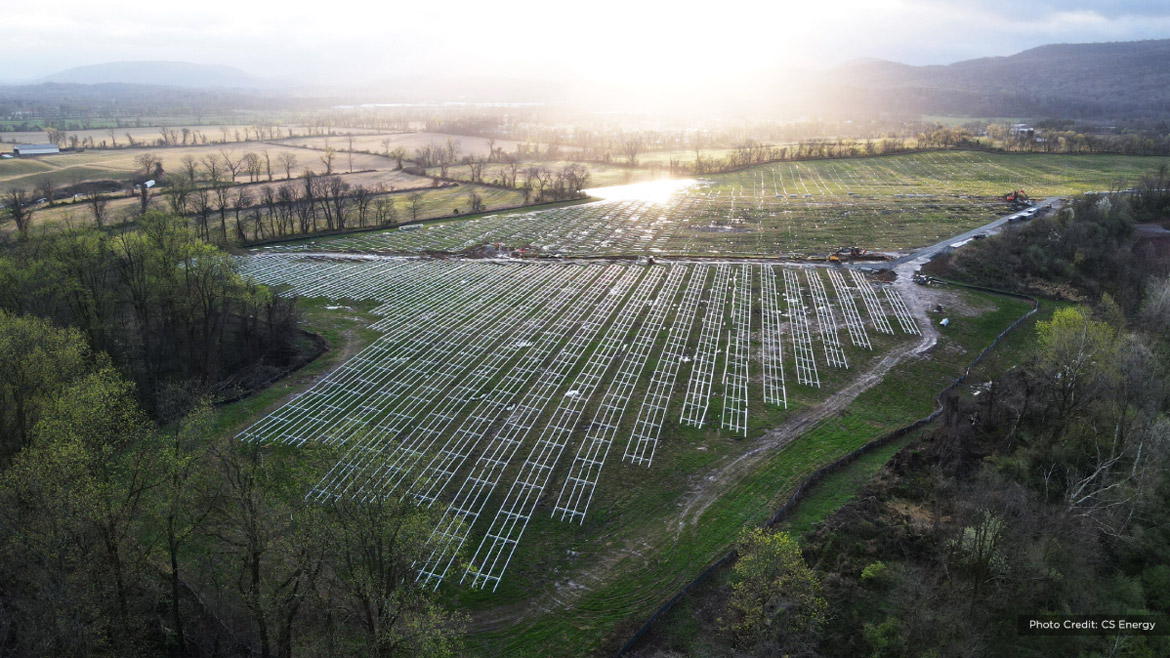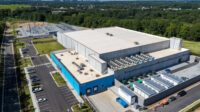CEP Renewables begins construction on 19 MW Brownfield solar project in New Jersey
The site had been contaminated with metals including arsenic and polycyclic aromatic hydrocarbons

Photo courtesy of CS Energy
CEP Renewables is nearing completion of construction on its 19 MW dc grid supply Foul Rift solar project in White Township, Warren County, New Jersey. The project is being developed on a brownfield site that was previously home to a composting facility with a history of environmental violations.
The site had been contaminated with metals including arsenic and polycyclic aromatic hydrocarbons. CEP removed the remaining compost and waste materials and worked with the New Jersey Department of Environmental Protection (NJDEP) to resolve the violations and terminate the solid waste permit.
"This project is the perfect example of the use of the renewable energy subsidy to not only reduce the regional carbon footprint, but also remediate environmental damages that would not have otherwise been addressed," said Chris Ichter, Executive Vice President at CEP Renewables. "We are pleased to have been able to leverage our prior experience on similarly challenging landfill and brownfield solar projects to develop a successful public-private partnership with White Township that will positively impact generations to come."
As part of its partnership with White Township, CEP agreed to create a porous pavement walking path circulating throughout the Township's recreational fields. This is an improvement that the Township had been planning to build, but which had long remained unfulfilled due to lack of funding.
The Foul Rift project contributes to New Jersey maintaining its ranking as the number one U.S. state for installed solar capacity per square mile. It also supports the state in achieving its goal of 100 percent clean electricity by 2035 - the most ambitious clean energy goal in the country.
CEP Renewables designs, develops, and builds grid-connected, utility-scale solar projects. The company has global expertise developing projects in Europe, Asia, and North America, and is focused on supporting New Jersey's ambitious Energy Master Plan requiring 100% utilization of clean energy by 2050.
The fixed-tilt, bifacial solar module project is expected to reach commercial operation by September 2024. It will complete the environmental remediation at the site while also providing reliable clean energy, pollinator habitats and greater tax revenue for the local community.


.jpg?height=200&t=1663879182&width=200)

